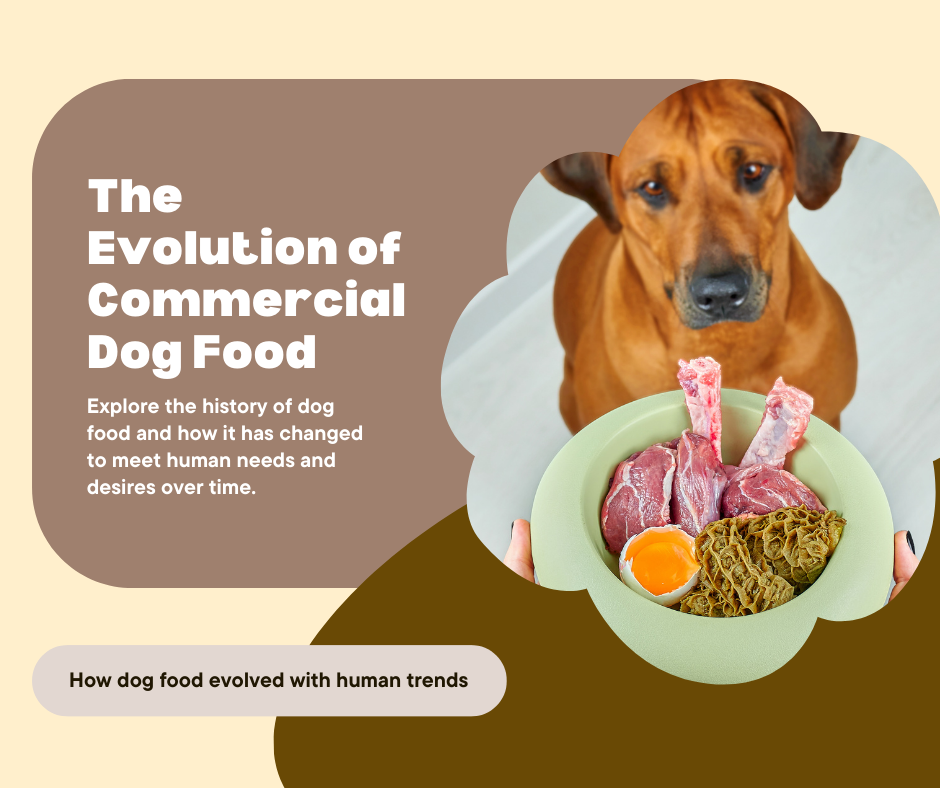The Evolution of Commercial Dog Food: Reflecting Human Needs and Desires

The history of dog food is a fascinating journey reflecting the evolving relationship between humans and their faithful companions. Before the industrial revolution, canine nutrition mirrored that of their working-class owners, often basic and lacking in variety. However, the wealthier the master, the more extravagant the dog's diet became. In the 1700s, royal dogs dined on succulent roast duck and lavish treats fit for kings and queens.
Urban working-class dogs in the mid-1800s fared slightly better, enjoying horse meat and leftovers from their owner's table. As pets gained status as luxury items, interest in canine nutrition grew, leading to debates about the best diet to maintain a dog's health and behavior. While meat was natural for dogs, some believed it led to health issues and behavioral problems in urban pets. Thus, a shift towards processed foods and controlled diets emerged.
The late 19th century saw the rise of homemade dog food recipes, with kennel masters taking pride in concocting nutritious meals for their beloved pets. However, commercial dog food soon entered the scene, pioneered by entrepreneurs like James Spratt, who introduced the first commercially produced dog biscuit in 1860. These prepackaged foods gained popularity, fueled by marketing campaigns that emphasized convenience and nutritional benefits.
By the mid-20th century, the pet food industry exploded, with companies promoting canned and dry foods as the ideal diet for dogs. Marketing tactics focused on convenience and nutritional superiority, leading to a shift away from home-cooked meals for pets. As consumer demand grew, industrial giants entered the market, further expanding the range of pet food options available.
In the 1960s and 70s, advertising strategies emphasized the nutritional value of commercial dog food, positioning it as a scientifically formulated alternative to homemade meals. As pet ownership increased, so did concerns about additives and artificial ingredients in pet food. This led to a return to natural ingredients and organic options, reflecting broader trends in consumer preferences for healthier products.
Today, the pet food industry continues to evolve, with a focus on natural ingredients and specialized diets tailored to pets' specific needs. Consumers are more educated about nutrition and seek products that prioritize their pets' health and well-being. Whether it's raw diets, grain-free options, or gourmet treats, the variety of dog food available reflects the deep bond between humans and their canine companions.
Noah's Ark Pet Treats: A Tradition of Quality and Care
Founded in November 2006, Noah's Ark Pet Treats is a Canadian company that has redefined the standards for pet treats. Beginning as a humble venture in a home kitchen, Noah's Ark Pet Treats has since grown into a leading provider of super premium, all-natural pet treats for dogs, cats, and other animals.
What sets Noah's Ark Pet Treats apart is their unwavering commitment to quality and nutrition. Every treat is made with 100% all-natural, human-grade ingredients, sourced locally in Canada. With strict adherence to health and safety standards, Noah's Ark Pet Treats ensures that their products contain no additives, preservatives, coloring, or artificial flavors.
Their dedication to pets' well-being is evident in their single-ingredient treats, which include favorites like RAW BEEF TRIPESICLE, RAW CHICKEN FEET, and PORK FEMURS WHOLE. These treats are crafted in their full-size commercial kitchen in Abbotsford, British Columbia, reflecting their passion for quality and care.
Pet parents can trust Noah's Ark Pet Treats to provide exceptional alternatives to commercial pet chews and treats. Each product is a testament to their commitment to excellence and their belief that pets deserve nothing but the best.
Explore Noah's Ark Pet Treats' range of nutritious and delicious treats. EXPLORE NOW.


Post Comment